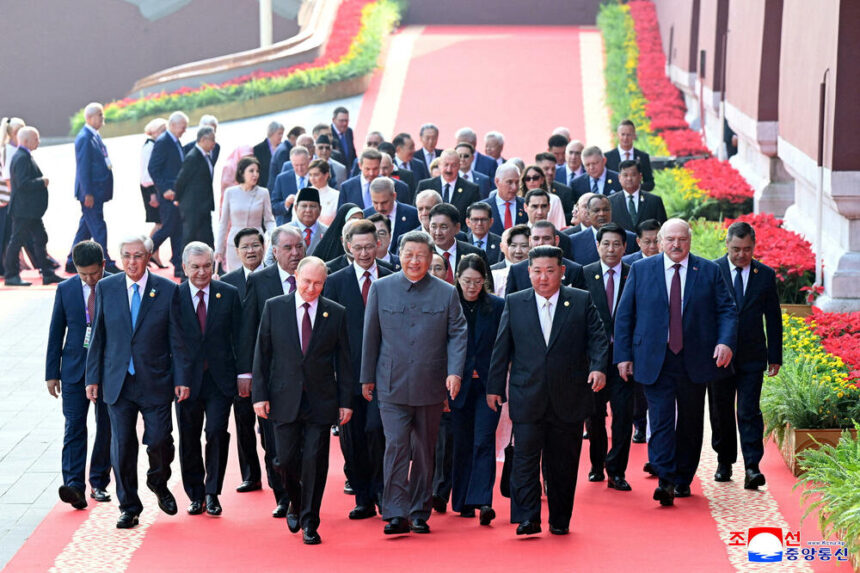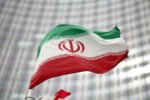Despite their shared animosity toward the West, China, Russia, and North Korea remain divided on key issues—from gas pipelines to military cooperation, reports Reuters.
Behind the cordiality with which Xi Jinping last week hosted Vladimir Putin and Kim Jong Un, there are clear limits to what the European Union has described as an “autocratic alliance” defying the West, according to diplomats, lawmakers, and analysts.
While the gathering at the Beijing military parade on September 3 raised concern among some world leaders as a potential geopolitical shift, Beijing, Moscow, and Pyongyang are far from forming a cohesive bloc, sources say.
Observers point to the absence of an official trilateral summit and uncertainty over major economic arrangements, such as the gas pipeline project. Vague pledges of closer cooperation may be intended more to strengthen negotiating positions with U.S. President Donald Trump, they added.
“I do not see this as the declaration of a new order,” said Victor Cha, head of the Geopolitics and Foreign Policy Division at the Center for Strategic and International Studies (CSIS) in Washington.
“It is a declaration of disorder and opportunism based on short-sighted personal interests,” added Cha, who previously served as Director for Asian Affairs at the U.S. National Security Council.
Still, “appearance matters,” said a long-serving U.S. diplomat in Asia, who requested anonymity due to the sensitivity of the matter.
“While China, Russia, and North Korea will undoubtedly continue to differ on certain policy areas, all three have clearly signaled that they are united by animosity toward the international system led by the U.S.,” the diplomat said.
Outgoing Japanese Prime Minister Shigeru Ishiba highlighted in his farewell speech that the image of nuclear-armed neighbors standing side by side underscores a serious security risk. EU foreign policy chief Kajsa Kallas previously described the gathering as a growing “autocratic alliance.”
Trump commented on the network Truth that Xi, Putin, and Kim are plotting against him—a remark the Kremlin described as ironic. A U.S. official said Trump is “disappointed that some countries have sided with China” and that “America will reassess” the situation, without providing details.
Points of Friction
The parade was a diplomatic display of power for Xi, helped Putin counter Western narratives about his isolation due to the Ukraine war, and gave Kim tacit support for his banned nuclear weapons, analysts note.
However, while Xi held separate one-on-one talks with Putin and Kim, the three leaders did not convene a formal trilateral summit.
“It seems China did not want to signal the start of formal trilateral cooperation,” said Jenny Town, director of 38 North, a Washington-based project monitoring North Korea.
This suggests that more direct demonstrations of force, such as joint military exercises, remain a distant prospect. Analysts note that this contrasts with the U.S. approach, which relies on security alliances like NATO, multilateral summits with Japan and South Korea, and the Quad grouping with Japan, Australia, and India to project global power.
Economic Dimension
On the economic front, there were seemingly tangible outcomes, led by a “binding memorandum” between Russia and China on a massive gas pipeline announced during the summit.
However, despite Putin’s promotion of the project, China did not mention the pipeline in any official statements and avoided questions on the topic during routine press briefings. Issues around cost and terms for the long-stalled project, which would transport gas roughly 3,000 km across Siberia to China, remain unresolved.
Beijing also refuses to open its winter wheat market to Russia, according to Agriculture Minister Oksana Lut, who traveled with Putin hoping to secure access. Signs have emerged that China is taking steps to open its domestic bond market to Russian companies excluded from Western capital markets, though the Russian Finance Ministry prefers local issuance.
The Trump Factor
The high-level meeting of Chinese economic officials suggests trade was also on the agenda, according to a senior foreign diplomat in Beijing who requested anonymity.
For the first time in years, the official Beijing statement did not mention “denuclearization”, which some analysts saw as a significant concession to Kim. In response, South Korea’s foreign ministry called on Beijing to play a constructive role in engaging Pyongyang in dialogue over its nuclear program.
Xi, in a letter to Kim after the summit, indicated that China is ready to enhance strategic communication with North Korea, according to Chinese state media.
However, unresolved issues—such as the status of North Korean workers in China—mean the friendly tone may be aimed more at strengthening China’s position relative to Washington, as Trump seeks meetings with both leaders, officials said.
Trump is expected to visit the region in late October for the Asia-Pacific Economic Cooperation (APEC) summit in South Korea, potentially opening a window for talks with Xi amid tense trade negotiations between the world’s two largest economies.
Meanwhile, the reclusive Kim shows no sign of resuming talks with Trump, which collapsed in 2019, though South Korean intelligence is monitoring whether this diplomatic wave could create openings, said South Korean lawmaker Lee Song-kwen.







